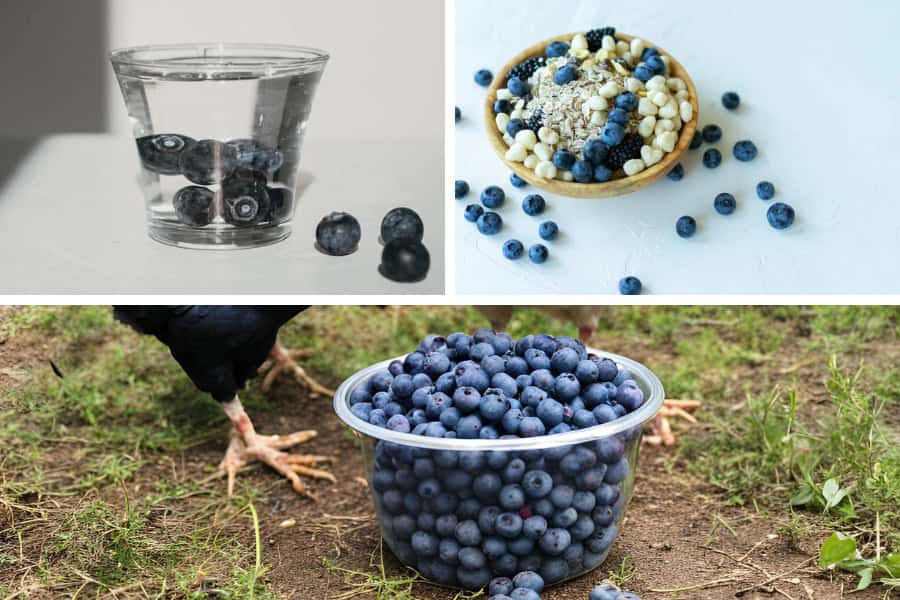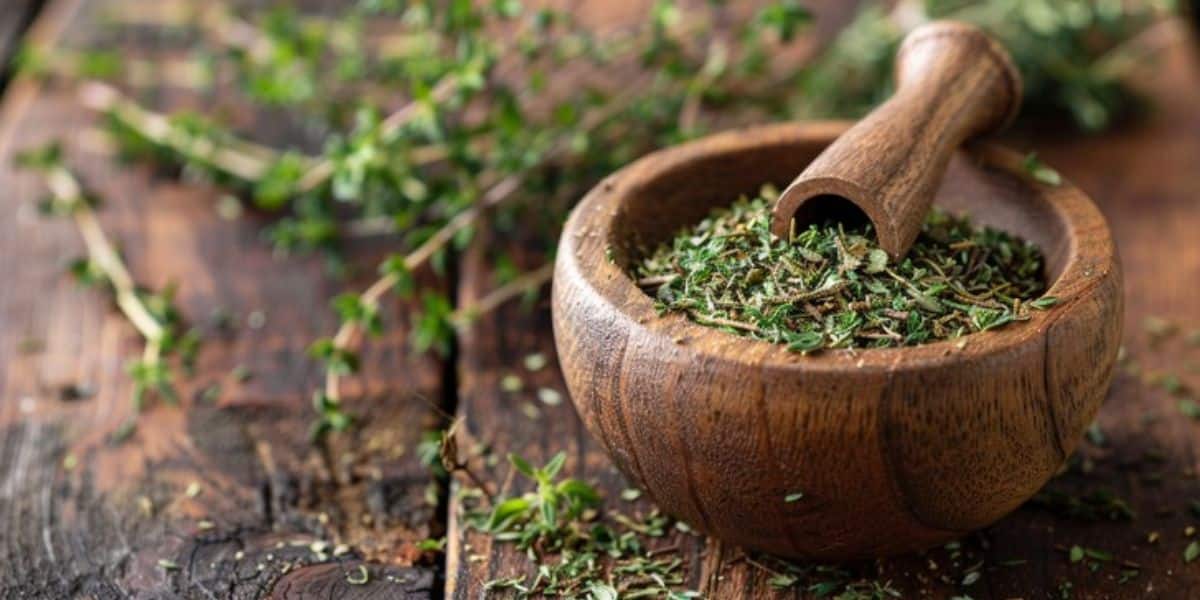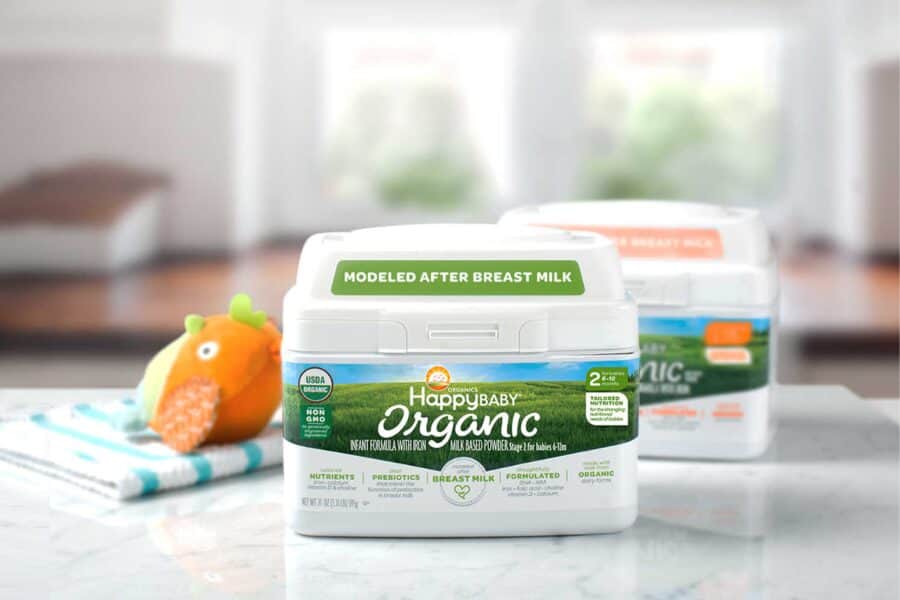Having chickens in the backyard is a dream for many people. It means fresh, organic eggs free from chemicals, which is great for the family. However, those who achieve this dream often struggle to keep their chickens healthy. Chickens are known for their varied diets and will eat almost anything you give them. But, as a chicken owner, it can be tough to know what food is good for chickens. One common question is whether certain fruits, like bananas and apples, are safe for chickens to eat. And can chickens eat blueberries too?
Another important aspect of chickenkeeping is sustainability. Sustainable practices involve using resources efficiently, reducing waste, and encouraging natural behaviors, benefiting both your chickens and the environment.
In this article, we’ll explore whether chickens can eat blueberries, their nutritional benefits, potential risks, recommended serving sizes, and best practices for feeding them to your flock—all while keeping sustainability in mind.
Let’s start with the main question: Can chickens eat blueberries?
Can Chickens Eat Blueberries?

The short answer is yes; chickens can eat blueberries. Blueberries are generally safe for chickens and can be a healthy addition to their diet when fed in moderation. These small, juicy fruits are packed with nutrients that can benefit your chickens’ health. However; it’s important to consider a few factors to ensure that blueberries are introduced safely and appropriately into their diet.
Are Blueberries Safe for Chickens?
Blueberries are safe for chickens to eat as long as they are offered in appropriate quantities. They contain no toxic compounds that would harm chickens and are generally well-tolerated by most flocks. However, like any new food, blueberries should be introduced gradually to avoid any potential digestive issues.
If you are still wondering, are blueberries safe for chickens? These nutrients found in blueberries will surely convince you to give chickens blueberries.
Nutritional Benefits of Blueberries for Chickens

Blueberries are a nutritional powerhouse, rich in vitamins, minerals, and antioxidants that can support your chickens’ health in various ways. Here are some key nutrients found in blueberries and their benefits:
Vitamins and Minerals
- Vitamin C: Boosts the immune system and helps protect against infections.
- Vitamin K: Important for blood clotting and bone health.
- Manganese: Supports metabolism and bone development.
- Fiber: Aids in digestion and prevents constipation.
Antioxidants
Blueberries are one of the richest sources of antioxidants, which help combat oxidative stress and reduce inflammation. These antioxidants can enhance your chickens’ overall health, supporting their immune system and improving their resilience against diseases.
Other Benefits
The high water content in blueberries helps keep chickens hydrated, especially during hot weather. Additionally, the natural sugars in blueberries provide a quick energy boost, making them a great treat for active chickens.
Also Read: Can Chickens Eat Blueberries?
How Blueberries Affect Chickens?

Chickens are an agile flock. If left in the open, they won’t come back unless caught. That’s one of their traits that indicates their good health. Here’s how blueberries, when fed in moderation, can have several positive effects on your chickens:
Overall Health and well-being
The vitamins and antioxidants in blueberries contribute to a stronger immune system, healthier skin, and better feather quality. Regular consumption can lead to vibrant, healthy-looking chickens that are less prone to illness.
Digestive Health
The fiber in blueberries aids in digestion, promoting a healthy gut. This can prevent issues such as constipation and diarrhea, ensuring that your chickens maintain a balanced digestive system.
Behavioral Changes and Egg Production
While there is no concrete evidence that blueberries directly impact egg production, the overall health benefits can lead to more consistent laying patterns. Healthy, happy chickens are more likely to produce high-quality eggs regularly.
Now, it’s important to know the right way to feed blueberries to chickens. So, we are going to answer your next question: how can I give my chickens blueberries, and can chickens eat whole blueberries?
Also Read: Can Chickens Eat Grapes?
How to Feed Blueberries to Your Feathered Friends

Well, you’re in luck because Ecowiser has got some super easy and fun ways to give blueberries to chickens.
1. Free-Range Blueberry Feeding: Just scatter those blueberries around the chicken run or enclosure and let your chickens do the rest. They’ll have a blast foraging for them and getting some exercise too!
2. Blueberry Mash for Chickens: Mix those blueberries with some other fruits and veggies, like apples and carrots, to create a tasty and healthy treat for your chickens. Blend it all up and serve it in a bowl or on the ground.
3. Frozen Blueberries: Freeze those blueberries and then give them to your chickens as a cool summer treat. The sweet and tangy taste of it will be a perfect treat for the chicks.
4. Blueberry Treats: Mix those blueberries with some oats and honey to create healthy treats for your chickens. They’ll love the sweet and crunchy texture!
5. Blueberry infused in water: Infuse those blueberries in water to create a refreshing and nutritious drink for your chickens. They’ll love the sweet and fruity flavor!
6. Blueberry and Grain Mix: Mix those blueberries with some grain, like oats or barley, to create a nutritious and filling treat for your chickens. They’ll love the combination of sweet and savory flavors!
Also, read how berry pomace can be a poultry feed.
Blueberries isn’t one of those food items that you chickens can’t enjoy, like onions. As a backyard chicken owner, these methods are going to let your chickens enjoy blueberries as snacks, treats, and more. You can just sit back and watch them in peace.
Before that, you must ask: How many times can I give blueberries to chickens?
Recommended Serving Size and Frequency
While blueberries are beneficial, they should be given as a treat rather than a staple of your chickens’ diet. Here are some guidelines for serving sizes and frequency of feeding blueberries to chickens to ensure that chickens eat blueberries safely:
90-10 Rule: Always remember the 90-10 rule, and give blueberries to chickens as a treat, not as a main food. 90% of their diet should be regular food, and 10% can be treats like blueberries, bananas, oranges, etc.
Portion Sizes: For an average-sized flock, a handful of blueberries (about 10–15 berries) is sufficient. For smaller flocks or individual chickens, adjust the quantity accordingly. It’s best to cut the blueberries in half to make them easier to eat and reduce the risk of choking.
Frequency: Blueberries should be offered no more than two to three times a week. Overfeeding can lead to potential health issues, which we’ll discuss in the next section. Moderation is key to ensuring that your chickens reap the benefits without any adverse effects.
Down below, we will discuss the ill effects of overfeeding blueberries to chickens.
Potential Risks of Overfeeding Blueberries
Chickens are delicate creatures. They are susceptible to infections, diarrhea, and sickness. Now, blueberries are healthy and can improve their overall health. Overfeeding chickens with blueberries can pose some risks:
1. Digestive Issues
Excessive blueberries can cause digestive problems, such as diarrhea, due to their high water and fiber content. This can lead to dehydration and nutrient imbalances if not managed properly.
2. Blood Sugar Levels
The natural sugars in blueberries, while beneficial in small amounts, can cause spikes in blood sugar if consumed in large quantities. This is particularly concerning for chickens, which might already be prone to health issues like obesity or metabolic disorders.
3. Nutrient Imbalance
Feeding too many blueberries can lead to an imbalance in your chickens’ diet. It’s important to ensure that blueberries complement their regular feed rather than replace it. A balanced diet should include a variety of grains, seeds, vegetables, and protein sources.
Now, here’s how you can give blueberries to chickens safely, without worrying about anything.
Best Practices for Feeding Blueberries to Chickens
To safely incorporate blueberries into your chickens’ diet, follow these best practices:
Preparation:
- Washing: Always wash blueberries thoroughly to remove any pesticides or contaminants.
- Cutting: Cut blueberries in half to make them easier for chicks and chickens to eat.
- Whole Blueberries: you can give chickens whole blueberries too, along with other fruits.
Feeding:
- Mixing: Combine blueberries with other treats or their regular feed to ensure a balanced diet.
- Observing: Monitor your chickens after introducing blueberries to ensure they tolerate them well. Look for any signs of digestive upset or behavioral changes.
Cleanliness:
- Feeding Area: Keep the feeding area clean to avoid attracting pests and to prevent the spread of diseases. Remove any uneaten blueberries after a few hours to maintain hygiene.
We understand that keeping chickens in the backyard is a lot of work. But these little fluffy and ever-active animals aren’t just sources of eggs or meat. They are also your companion and a way to live a sustainable life. Here’s why Ecowiser supports sustainable chicken-keeping.
Ecowiser Supports Sustainable Chicken Keeping and feeding them Blueberries
We know that keeping chickens can be a sustainable and eco-friendly way to produce your own food. By providing your chickens with a varied diet that includes nutritious treats like blueberries, you can reduce food waste and promote a more circular economy.
Blueberries that are grown locally and organically can help support small-scale farmers and reduce the carbon footprint associated with long-distance transportation. Additionally, the manure produced by your chickens can be used as a natural fertilizer for your garden, closing the loop and creating a more sustainable system.
Summing up!
In conclusion, blueberries can be a healthy and safe treat for your chickens when fed in moderation. They provide valuable nutrients that support overall health and well-being, including vitamins, minerals, and antioxidants. By following the recommended serving sizes and best practices for feeding, you can ensure that your chickens enjoy the benefits of blueberries without any adverse effects. Always observe your flock and adjust their diet as needed to maintain their health and happiness.
Now that you have discovered that chickens can eat blueberries, do continue your journey of knowing more about what you can feed your little munchkins. Read along to learn if celery is good for chickens.
Frequently Asked Questions (FAQs)
1. Can I feed blueberries to chickens?
Yes, you can feed blueberries to chickens. Blueberries are safe and nutritious for chickens, offering vitamins, minerals, and antioxidants. However, they should be given in moderation as a treat rather than a main food source to ensure a balanced diet.
2. Are there any fruits that chickens can’t eat?
Yes, some fruits should be avoided. Chickens should not eat avocados (due to persin), citrus fruits in large quantities (which can cause digestive issues), or the seeds and pits of apples, cherries, peaches, and plums (which contain cyanogenic glycosides, which can be toxic).
3. Can chickens eat blueberry seeds and skins?
Yes, chickens can eat blueberry seeds and skins. Both are safe and can be consumed without any issues. The skins contain additional fiber and antioxidants, which are beneficial for their health.
4. Do chickens eat bananas?
Yes, chickens can eat bananas. Bananas are a good source of vitamins and minerals, such as potassium and vitamin B6. They can be fed as an occasional treat. However, due to their high sugar content, bananas should be given in moderation.
5. What food is good for chickens?
A balanced diet for chickens includes commercial chicken feed (layer pellets for laying hens, grower feed for young chickens, and starter feed for chicks), grains and seeds (such as corn, wheat, and sunflower seeds), vegetables (like leafy greens, carrots, and pumpkins), fruits (including blueberries, apples, and bananas), and protein sources (such as mealworms and cooked eggs).








